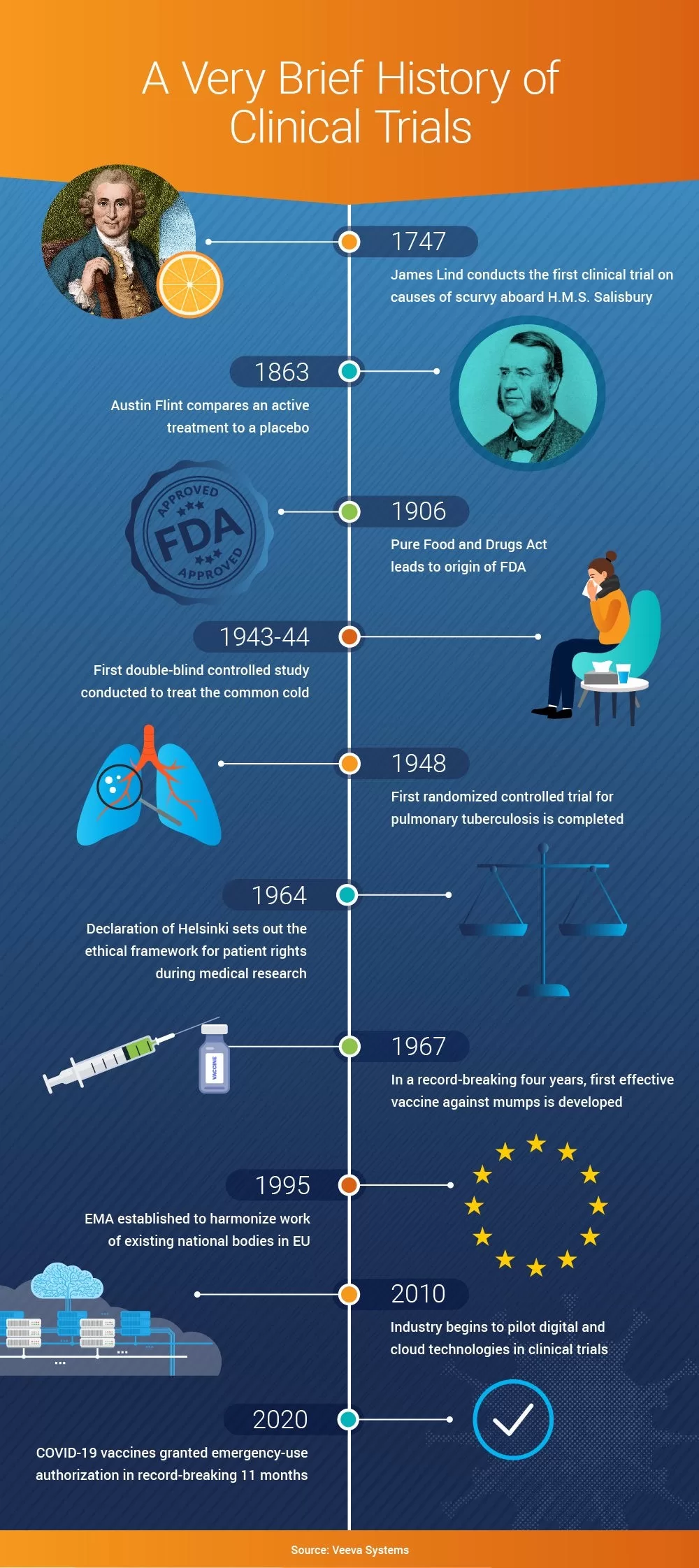Clinical Trials Day, observed annually on May 20, marks a pivotal moment in the landscape of medical research, celebrating the inception of clinical trials initiated by James Lind in 1747. This day is not merely a historical commemoration; it highlights the invaluable role clinical trials play in fostering medical advancements and enhancing patient care. As we approach Clinical Trials Day 2025, it becomes critical to acknowledge the strides made in clinical research and the challenges that persist, particularly around diversity in trials. This observance invites an introspective look at how clinical trials impact healthcare practices globally. Join us as we explore the significance of Clinical Trials Day and its implications for the future of clinical research and patient health outcomes.
Celebrating the essence of Clinical Trials Day encompasses recognizing the profound impact of clinical studies in advancing medical knowledge and patient well-being. This day serves to honor the historical roots of clinical experimentation, and emphasizes its relevance in today’s healthcare environment. Each year, researchers focus on improving methodologies and patient engagement, paving the way for breakthroughs in health interventions. As we reflect on these developments, it is crucial to consider the diversity in trial participation, as this directly affects the efficacy of treatments across various populations. Thus, the narrative surrounding this day extends beyond mere celebration to encompass a commitment to inclusivity and innovation in clinical research.
The Importance of Clinical Trials Day
Clinical Trials Day serves as an essential reminder of the critical role that clinical trials play in the advancement of medical science. Established to commemorate the first clinical trial conducted by James Lind in 1747, this day highlights significant milestones achieved in clinical research. Each year, it draws attention to the necessity for ongoing research that leads to the discovery of new drugs, improvements in patient care, and advancements across various fields of medicine.
Moreover, Clinical Trials Day also aims to raise awareness about the various challenges faced in clinical research today. From patient recruitment and retention to ensuring diverse representation in clinical trials, there remains much work to be done. By marking this day, we not only honor historical achievements but also reaffirm our commitment to addressing these challenges and enhancing the framework of clinical research.
Diversity in Clinical Trials: A Focus for 2025
One of the most pressing issues in clinical research is the lack of diversity among trial participants. As we approach Clinical Trials Day 2025, a significant impetus is placed on ensuring that individuals from diverse backgrounds are represented in clinical studies. This is crucial as it allows researchers to determine if treatments are effective across different demographics, ultimately leading to improved health outcomes. Historically, many clinical trials have skewed towards predominantly white populations, raising concerns about the generalizability of research findings.
Addressing diversity in clinical trials is not just an ethical obligation but is also pivotal to the success of patient care initiatives. Efforts to include underrepresented groups, such as Black individuals and ethnic minorities, in research are gaining traction. Initiatives advocating for diversity focus on understanding the cultural barriers that prevent participation and actively working to foster inclusivity. Such efforts will not only contribute to equitable healthcare but will also enhance the scope and effectiveness of clinical research.
Innovations in Decentralized Clinical Trials
The advent of decentralized clinical trials (DCTs) marks a revolutionary change in how clinical research is conducted. DCTs utilize technology to allow trials to be conducted in a more flexible manner, often directly in the participants’ homes. This shift is particularly significant for patients with mobility issues or those living in remote areas, as it enhances accessibility and participant engagement. By minimizing the logistical burdens associated with traditional trials, decentralized models encourage broader patient participation.
Recent case studies, such as those from CVS Health, illustrate the increasing popularity and effectiveness of DCTs. These studies have demonstrated that by meeting patients where they are, researchers can not only improve enrollment rates but also create more meaningful data that reflects real-world effectiveness. As we celebrate Clinical Trials Day, it is vital to recognize these innovative methodologies as they represent a promising direction for the future of clinical research and patient care.
Advancements in Oncology Trials
Oncology trials continue to be at the forefront of medical research, showcasing notable advancements in cancer treatment and management. The HARMONIC trial, for example, has provided important insights into how new therapeutic interventions can lead to improved clinical outcomes for cancer patients. The results have implications that not only advance medical knowledge but also support the future of oncology treatment paradigms, which rely heavily on the data garnered through clinical trials.
The complexity of cancer research necessitates innovative approaches and adaptability within clinical trials. By examining promising results from recent oncology studies, researchers aim to refine existing treatment protocols and develop specialized drugs tailored to combat various forms of cancer. This illustrates the deep connection between ongoing research trials and the efficacy of treatment methodologies, reaffirming the critical role that clinical trials play in the advancement of medical science and, ultimately, in patient care.
The Future Landscape of Clinical Trials
As we look towards the future of clinical trials, it is evident that the landscape is rapidly evolving. The convergence of technology and medicine, coupled with a growing emphasis on patient-centered research, indicates a transformative period ahead for clinical trials. Innovations in trial design, including real-world evidence incorporation and telemedicine, are setting the stage for more inclusive and effective research methodologies. The potential for accelerating the development of new therapies has never been greater.
Moreover, the commitment to improving patient care through a focus on diversity, accessibility, and innovative trial approaches will shape the future of clinical research. As we celebrate Clinical Trials Day, it is essential to foster a culture of collaboration among researchers, healthcare providers, and patients. This interplay will not only lead to improved patient outcomes but will also ensure that the advancements made in clinical trials resonate widely across different populations, enhancing the overall efficacy of new medical advancements.
Frequently Asked Questions
What is the significance of Clinical Trials Day?
Clinical Trials Day is celebrated annually on May 20, marking the first clinical trial conducted by James Lind in 1747. This day emphasizes the crucial role clinical trials play in developing new treatments and improving patient care through medical advancements.
How do decentralized clinical trials enhance patient accessibility on Clinical Trials Day?
Decentralized clinical trials, highlighted on Clinical Trials Day, offer flexible participation options that allow patients to engage from home. This innovation improves accessibility and potentially increases enrollment rates, making clinical research more inclusive and effective.
Why is diversity in clinical trials important on Clinical Trials Day?
Diversity in clinical trials is essential as it ensures research findings are applicable to all demographics. On Clinical Trials Day, the focus on increasing representation of underrepresented groups helps enhance treatment efficacy and addresses health disparities within patient care.
What advancements in clinical trials can we celebrate on Clinical Trials Day 2025?
Clinical Trials Day 2025 will celebrate significant advancements such as innovative trial methodologies, the growth of decentralized trials, and increased diversity in research populations. These developments collectively enhance the efficiency and effectiveness of clinical trials in medical research.
How do clinical trials help address health disparities?
Clinical trials play a vital role in addressing health disparities by actively recruiting diverse populations. Initiatives showcased around Clinical Trials Day highlight strategies to improve minority participation, ensuring that research benefits all segments of the population and fosters equitable healthcare outcomes.
| Key Topics | Description |
|---|---|
| Decentralized Clinical Trials and Patient Accessibility | CVS Health emphasizes patient participation by offering decentralized trials that allow patients to engage from home, improving enrollment rates. |
| Growth in the Clinical Trials Market | The clinical trials market is expected to grow significantly due to increased investments in methodologies and technologies. |
| Diversity in Clinical Trials | Efforts are being made to include more diverse populations, particularly underrepresented groups, to enhance research applicability. |
| Addressing Health Disparities | Innovative approaches are being implemented to recruit minority participants, improving inclusivity in clinical research. |
| Oncology Trials and Advancements | Promising results from oncology trials like Lantern Pharma’s HARMONIC trial show significant benefits from new cancer therapies. |
Summary
Clinical Trials Day is observed on May 20 each year to celebrate advancements in medical research. As we anticipate Clinical Trials Day 2025, we must highlight the essential role these trials play in developing new treatments and improving healthcare practices. Innovations in decentralized trials, market growth, diversity, health disparities, and oncology advancements illustrate the dynamic progress within clinical research. Recognizing these efforts on Clinical Trials Day fosters greater commitment to enhancing healthcare outcomes and inspires further advocacy for the critical contributions of clinical trials.
The content provided on this blog (e.g., symptom descriptions, health tips, or general advice) is for informational purposes only and is not a substitute for professional medical advice, diagnosis, or treatment. Always seek the guidance of your physician or other qualified healthcare provider with any questions you may have regarding a medical condition. Never disregard professional medical advice or delay seeking it because of something you have read on this website. If you believe you may have a medical emergency, call your doctor or emergency services immediately. Reliance on any information provided by this blog is solely at your own risk.







